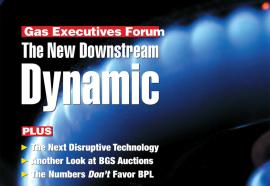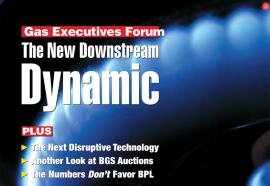Frontlines & Op-Ed
Guns, Butter, or Green?
Utilities will face stark tradeoffs in meeting the next round of emissions controls.
Frontlines
Frontlines
Can utility executives find happiness in back-to-basics?
We've read the pitch a number of times in these very pages. Top investment bankers have told us that a "back-to-basics" strategy will never produce a high-enough return to please electric utility stockholders; that the only solution to bridge this "earnings gap" would involve a rash of mergers and acquisitions (M&A) between utilities.
Monopolists in Our Midst
What happens when economists and state regulators give up on electric restructuring?
A Better Merchant Mousetrap?
The failure of the Empire Connection spells trouble for private transmission projects.
The New, New Thing?
At a posh dinner event and conference, industry experts speculate on the issues that could affect the industry in 2005.
Letters to the Editor (December 2004)
Frontlines
Frontlines
Moscow's ratification of the Kyoto protocol could pose problems for the United States.
It could mark the biggest bungle of the last two administrations-the decision to walk away from the Kyoto Protocol rather than stay and negotiate to U.S. advantage. No one thought Russia would sign and put the treaty in force. But now that Russia's ratification appears imminent, policy wonks in America are scrambling to assess the impact.
Letters to the Editor / Corrections, Clarifications
Letters to the Editor
To the Editor:
Robert Blohm's article, "Solving the Crisis in Unscheduled Power," () ignores a significant part of the power-scheduling paradigm-that is, it ignores transmission. Every power schedule not only includes load and generation but also a path to move the electricity between those points.
Frontlines
Frontlines
Will a back-to-basics strategy meet investor expectations?
It's an issue that is coming to the fore with greater force-the debate over how utilities should honor their obligation to stockholders. But this time there seems to be quite a difference of opinion over strategy-or so we found in our annual finance issue.







